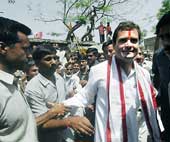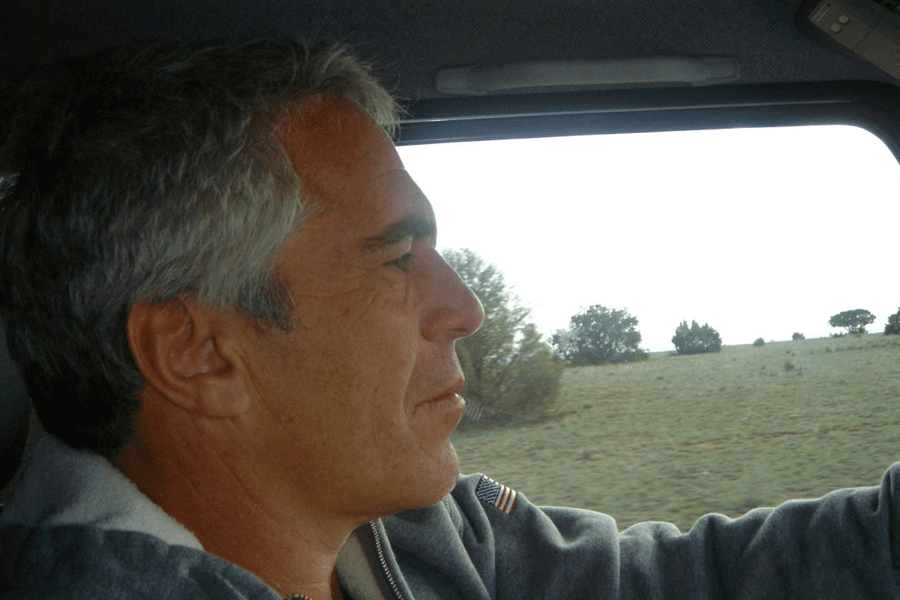|
|
It all started when the Election Commission website published the affidavit of personal details submitted by the Congress candidate for Amethi, Rahul Gandhi. An inquisitive netizen sent copies of the link by email to various political activists. Going through the details of Rahul’s bank balances, property details and other intrusive features of the EC form for candidates, many were struck by the section on educational qualifications.
Rahul listed two items as his educational qualifications. In 1989, it seems he completed the senior secondary examination conducted by the Central Board of Secondary Education. Then, in 1995, he secured an MPhil in development economics from Trinity College Cambridge, which also happened to be the alma mater of his great-grandfather, Jawaharlal Nehru. If I am not mistaken, his father Rajiv also spent a couple of years there before being sent down.
On the face of it, nothing seemed out of order. It had been whispered earlier in Delhi’s social circles that Rahul was an MPhil (Cantab). At the time of his nomination, his sister Priyanka too had claimed to a television channel that Rahul was “highly educated”. Yet, for those intent on nit-picking, there was something very peculiar about Rahul’s claims. How, it was asked, was Rahul awarded an MPhil when he did not list either a BA or a BSc among his qualifications? It was well known that Rahul had spent a year at St Stephen’s in Delhi. That is not time enough to write a BA examination. He had also spent some time in Harvard, where a BA takes four years to complete. If he had a graduate degree from Harvard, it is not something he would have kept under wraps or omitted to mention.
The mystery of how Rahul earned an MPhil without a graduate degree prompted a flurry of inquiries. At first the inquiries came to nought. Cambridge could not confirm that one Rahul Gandhi had been awarded an MPhil as a member of Trinity College. Yet, before people could deliberate on the implications of this, rediff.com, a popular news website, published a confirmation from the authorities in Cambridge that Rahul had indeed been awarded an MPhil.
The question of why Cambridge had initially denied Rahul’s existence and had subsequently confirmed it to rediff.com prompted further inquiries. This led to some amazing disclosures.
Cambridge apologized for the initial reply. The confusion, it seems, had taken place because Rahul had registered in Cambridge not as Rahul Gandhi but on the basis of what the registry in Cambridge said was his mother’s maiden name. This, they claimed, was done for “security reasons”. It was a perfectly credible explanation since the British authorities invariably recommend the use of aliases for those who have reasons to be wary about their personal safety. Consequently, it was indeed possible that Rahul assumed the surname Maino for his year’s stint in Cambridge.
The matter did not end here. When pressed for a final confirmation of the name, the authorities in Cambridge disclosed that the pseudonym was Rahul Vinci.
The details of Rahul’s Cambridge degree and his pseudonym have been known to the Bharatiya Janata Party for the past fortnight. The party could well have used it for some low-level attack suggesting Rahul’s preference for Italian rather than Indian names. But it chose to overlook the whole issue on the ground that personal attacks of this nature yield no political returns and instead generate public sympathy for the victim.
I don’t think anyone in India will disagree with this assessment. Despite the pre-emptive clampdown by the EC on personal attacks and the feigned indignation of the editorial writers at stray utterances by the Gujarat chief minister, Narendra Modi, and the Uttar Pradesh BJP chief, Vinay Katiyar, the campaign for the 14th Lok Sabha has been conducted with exemplary decorum. The Congress may have tried to equate the BJP’s assault on the very idea of a foreign-born prime ministerial candidate with a violation of the code of conduct but that is stretching the notion of taboo to ridiculous extremes. Overall, there is a loosely defined lakshman rekha which governs the conduct of political parties. Except at local levels when it occasionally descends to a no-holds-barred encounter, restraint is the hallmark of Indian political discourse.
The Congress, for example, quickly opted out of charges of alleged misdemeanour in 1942 against the prime minister and a veil of silence greeted Janardhan Poojary’s questions on Atal Bihari Vajpayee’s personal life. Likewise the revelation of the suspect marriage record of the filmstar, Dharmendra, was dismissed by a court as having no bearing on elections. The bizarre allegation of the Congress spokesman, Kapil Sibal, against the deputy prime minister, L.K. Advani, for belonging to a family that allegedly owned a horse-drawn buggy in Karachi was, predictably, greeted with contempt. Questions about Vajpayee’s age and health or Sonia’s comprehension of India too have met with aesthetic disapproval. And the Madhya Pradesh chief minister, Uma Bharti, won many brownie points for bluntly telling a leading television anchor that he was sick and deranged for making suggestive remarks on her personal life.
In 1963, Jawaharlal Nehru haughtily ticked off the socialist stalwart, Ram Manohar Lohia, for lowering parliamentary debate to the level of the bazaar; and in 1999, Sonia Gandhi offended ordinary decencies by calling Vajpayee a liar. Since then, India has travelled some distance. The prevailing consensus has become more intolerant of what it perceives are extraneous, non-political issues.
The contrast with Western democracies could not have been sharper. In the ongoing campaign for the White House, the Democratic candidate, John Kerry, is having a harrowing time providing details of something he said on TV more than 30 years ago. He has to explain his wife’s tax returns and how much he paid for a haircut. The public interrogation of Kerry is, of course, mere tittle-tattle compared to the scrutiny of his financial affairs and sexual escapades that President Bill Clinton was subjected to.
In a similar vein, the personal lives of British politicians have come in for very close scrutiny. For a country where family values have broken down severely, public opinion seems to attach great importance to adherence to fidelity and uprightness in politicians and their associates. With the sole exception of Alan Clarke, who got away with hideous misdemeanours because he was a great writer and a scintillating wit, Britons like their politicians to uphold the last vestiges of Victorian morality. It may be hypocrisy but these double standards are a hallmark of the authentic Westminster model.
The intrusiveness of Anglo-Saxon democratic tradition rests on the principle that a person seeking public office has forfeited the right of privacy and that all his actions, both past and present, must be a matter of public record. The lengthy campaign period for the presidential election is aimed at testing a candidate to the hilt, to assess whether or not he is above board and capable of coping with the unavoidable pressures of high elected office. Given the levels of endurance required, it is an automatic deterrent against those who seek to create ephemeral electoral waves based on their ability to hold successful road shows.
Evolved democracies, it would seem, have a more rigorous approach to finding the best candidate for public office. The squeamishness in India over raking up the personal life of an aspirant may appear as gentlemanly conduct. In reality, it leaves too many unanswered questions which, had they been clarified, would have contributed to a more informed choice. Like, how was Rahul awarded an MPhil without a basic graduate degree?











